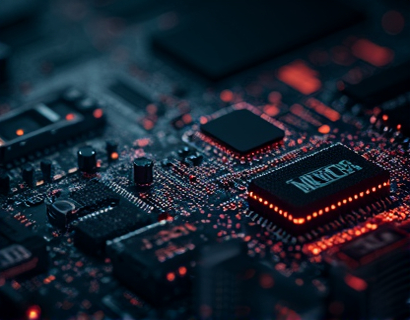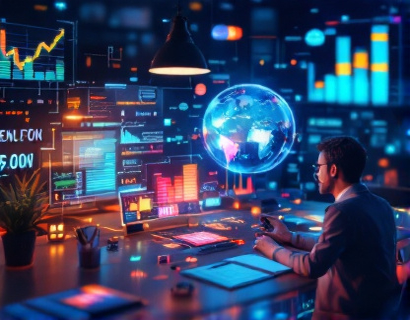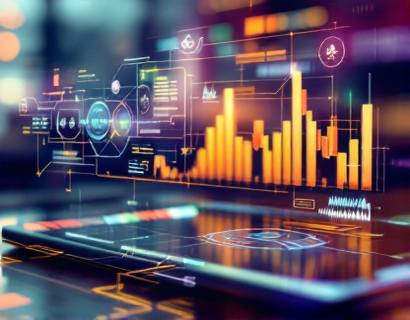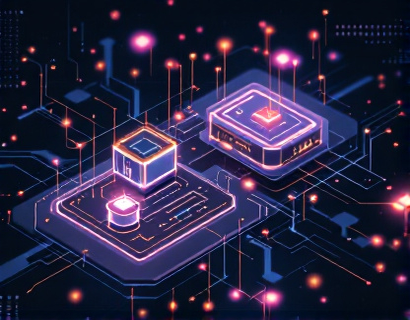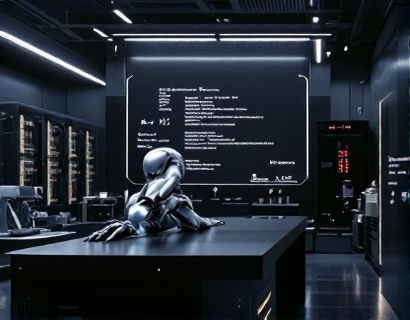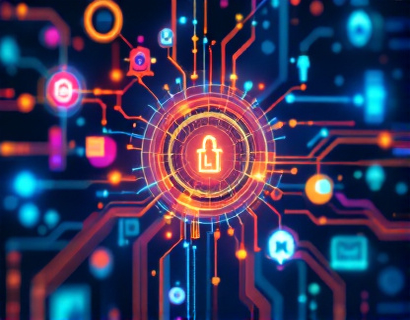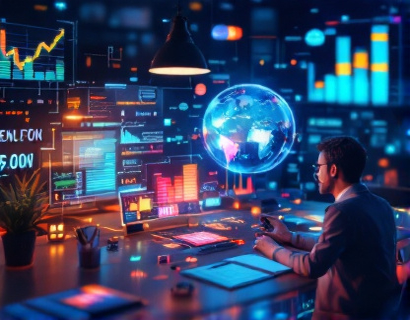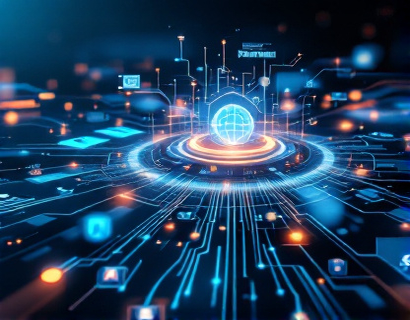Unleashing Next-Gen Productivity: The Synergy of Crypto and AI
The intersection of cryptocurrency and artificial intelligence (AI) is giving rise to a new era of digital productivity tools. This fusion is not just a technological curiosity but a powerful force that is redefining how we work, interact, and innovate in the digital space. For tech professionals and enthusiasts, understanding and leveraging these advanced digital solutions is crucial for staying ahead in a rapidly evolving landscape.
The integration of blockchain technology with AI is creating a robust ecosystem where data integrity, security, and efficiency are paramount. This article delves into the latest tools and applications that harness the combined power of crypto and AI, offering a comprehensive guide to enhance your digital productivity and innovation.
Understanding the Basics: Crypto and AI
To fully appreciate the potential of crypto and AI, it's essential to grasp the fundamentals of both technologies. Cryptocurrency, at its core, is a digital or virtual currency that uses cryptography for security and operates on a decentralized network, typically a blockchain. This decentralized nature ensures transparency, immutability, and reduced reliance on intermediaries.
Artificial intelligence, on the other hand, involves the simulation of human intelligence processes by machines, particularly computer systems. These processes include learning (the acquisition of information and rules for using it), reasoning (using rules to reach approximate or definite conclusions), and self-correction. AI can operate through various subsets, including machine learning, natural language processing, and computer vision.
The convergence of these two technologies is particularly potent. Blockchain's inherent properties, such as decentralization and transparency, complement AI's capabilities in data processing and machine learning. This synergy can lead to more secure, efficient, and transparent AI systems, which in turn can drive unprecedented levels of productivity and innovation.
Enhancing Data Security and Integrity
One of the most significant benefits of combining crypto and AI is the enhancement of data security and integrity. Blockchain's immutable ledger ensures that data once recorded cannot be altered without consensus from the network, providing a tamper-proof environment for AI algorithms to operate. This is particularly crucial in industries where data integrity is paramount, such as finance, healthcare, and supply chain management.
For instance, AI-driven analytics on a blockchain-based platform can process and analyze vast amounts of data with confidence in its authenticity. This ensures that insights derived from AI are reliable and trustworthy, reducing the risk of errors or manipulations. Such a system can significantly boost decision-making processes in businesses, leading to more informed and accurate outcomes.
Optimizing AI Performance with Decentralized Computing
AI models, especially deep learning algorithms, require substantial computational power and large datasets for training. Traditional centralized computing models often face bottlenecks in terms of scalability and cost. Decentralized computing, powered by blockchain technology, offers a solution to these challenges.
Decentralized computing platforms allow AI tasks to be distributed across a network of nodes, leveraging the computational resources of multiple participants. This not only enhances processing speed but also reduces costs and energy consumption. For example, a decentralized AI training platform can dynamically allocate resources based on demand, ensuring optimal performance while minimizing waste.
Moreover, the use of cryptocurrencies as a medium of exchange in these decentralized platforms can incentivize participants to contribute their computational resources. This creates a robust and self-sustaining ecosystem where both providers and users benefit from the collective computational power.
Smart Contracts for Automated Workflows
Smart contracts, self-executing contracts with the terms directly written into code, are another key component of the crypto and AI synergy. These contracts can automate complex workflows, ensuring that AI-driven processes are executed precisely and efficiently without human intervention.
In a business context, smart contracts can be used to automate payment processes based on AI-generated insights. For example, an AI system analyzing market trends can trigger a smart contract to execute a trade once certain conditions are met. This not only speeds up the process but also reduces the risk of human error and fraud.
In the realm of supply chain management, smart contracts can ensure that AI-optimized logistics are followed accurately. Each step in the supply chain, from production to delivery, can be monitored and automated, ensuring transparency and accountability throughout the process.
Personalized User Experiences through AI and Blockchain
The combination of AI and blockchain can also revolutionize how we interact with digital services, providing highly personalized and secure user experiences. AI algorithms can analyze user data to create tailored recommendations, while blockchain ensures that this data is stored securely and privately.
For instance, a content streaming platform can use AI to analyze viewing habits and preferences, recommending content that aligns with individual tastes. By storing user data on a blockchain, the platform can guarantee data privacy and ownership, giving users control over their information. This not only enhances user satisfaction but also builds trust in the service provider.
Furthermore, blockchain-based identity verification can ensure that AI-driven personalization is based on authentic and consent-based data. This approach can mitigate issues related to data breaches and unauthorized data usage, creating a more secure and user-centric digital environment.
Fostering Innovation through Open Source and Collaboration
The crypto and AI ecosystem is inherently collaborative, with many projects and platforms promoting open-source development and community-driven innovation. Open-source AI models and blockchain protocols encourage developers and researchers to build upon existing work, accelerating the pace of innovation.
For tech enthusiasts, participating in these open-source projects can be a valuable way to contribute to the field and gain hands-on experience with cutting-edge technologies. Platforms like GitHub host numerous projects that combine AI and blockchain, offering a wealth of resources and opportunities for collaboration.
Moreover, the decentralized nature of these projects fosters a diverse and inclusive community, where ideas can be shared and refined through collective effort. This collaborative approach not only drives technological advancements but also cultivates a culture of continuous learning and improvement.
Challenges and Considerations
While the potential of crypto and AI is immense, there are several challenges and considerations to keep in mind. One of the primary concerns is the regulatory landscape. As these technologies continue to evolve, governments and regulatory bodies are grappling with how to address their unique characteristics and implications.
Compliance with regulations is crucial for any business or individual leveraging crypto and AI. Staying informed about legal requirements and best practices can help mitigate risks and ensure sustainable growth. Additionally, the environmental impact of blockchain and AI, particularly in terms of energy consumption, is an area that requires ongoing attention and innovation.
Another consideration is the technical complexity involved in integrating these technologies. Developing robust and secure systems that effectively leverage both crypto and AI requires specialized knowledge and expertise. For organizations and individuals new to these technologies, investing in education and training is essential to navigate the learning curve.
Future Prospects: The Next Generation of Digital Solutions
Looking ahead, the fusion of crypto and AI is poised to drive significant advancements in various sectors. From enhancing cybersecurity and financial services to transforming healthcare and smart cities, the applications are vast and varied.
One exciting area is the development of decentralized AI marketplaces, where AI models and data can be bought, sold, and shared in a secure and transparent manner. These marketplaces can democratize access to AI technologies, enabling a broader range of users to benefit from their capabilities.
Another promising direction is the integration of AI with the Internet of Things (IoT) on a blockchain foundation. This can lead to more secure and efficient IoT ecosystems, where devices can communicate and operate autonomously, powered by AI-driven insights.
In conclusion, the combination of cryptocurrency and artificial intelligence is not just a technological trend but a transformative force that is reshaping the digital landscape. By embracing these advanced digital solutions, tech professionals and enthusiasts can unlock new levels of productivity, innovation, and efficiency, paving the way for a more connected and intelligent future.




